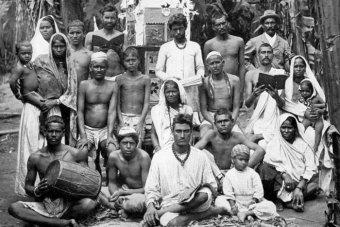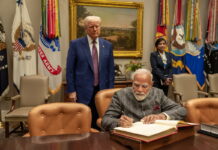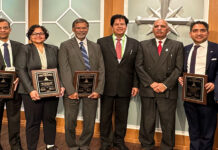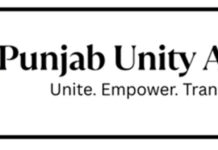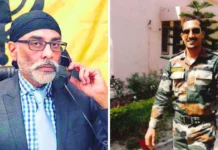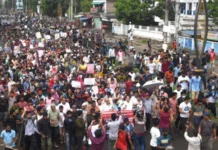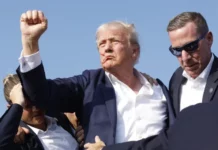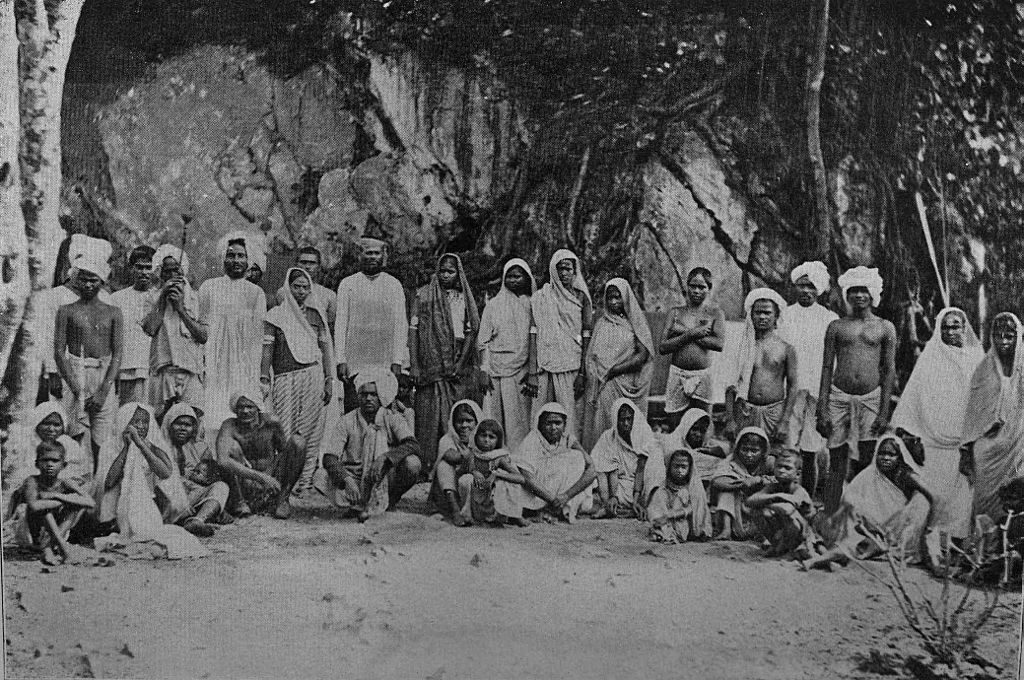
Indo-Dutch contacts go back to more than 400 years. Official relations, established in 1947, have been cordial and friendly. India’s economic growth, its large market, its pool of knowledge workers are of interest to the Netherlands. The two countries also share common ideals of democracy, pluralism and the rule of law. Bilateral ties have been marked by strong economic and commercial relations.
Since the early 1980s, the Dutch government has identified India as an important economic partner. Bilateral relations underwent further intensification after India’s economic liberalization in the early 1990s. In 2006, former Prime Minister Balkenende’s government declared India, along with China and Russia, as priority countries in Dutch foreign policy. The successful visit of the Dutch Prime Minister Mark Rutte to India (June 5-6, 2015) set the stage to take bilateral ties to the next level and realize the full potential of the relationship. The highlight of 2017, which was the 70th anniversary of the diplomatic relationship between India and the Netherlands, was the visit of Indian Prime Minister Narendra Modi to the Netherlands in June 2017. The visit provided a significant boost to the bilateral ties which have become multifaceted and encompass cooperation in various areas.
Dutch Prime Minister Mark Rutte visited India May 24-25, 2018, along with a high-level delegation comprising Minister of Infrastructure and Water Management, Deputy Prime Minister and Minister for Agriculture, Nature and Food Quality, Minister for Foreign Trade and Development Cooperation, Minister for Medical Care and Mayor of the city of The Hague. Rutte was accompanied by the largest ever Dutch trade mission to India comprising over 130 companies/institutions and nearly 200 trade representatives. During this visit, the Netherlands signed the Framework Agreement of the International Solar Alliance (ISA) and became the 64th signatory member country.
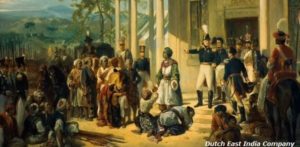
Political and Economic Relations
As can be seen above, there have been regular high level visits from both sides. Other important visits in recent times are as follows.
Queen Máxima visited India May 28-30, 2018 in her capacity as the UN Secretary-General’s Special Advocate for Inclusive Finance for Development. She met Prime Minister Modi in New Delhi and discussed various initiatives taken by the Government of India for enhancing financial inclusion in India. She also met then External Affairs Minister Sushma Swaraj and discussed the progress that India has achieved in the area of financial inclusion since her previous visit to India in 2014.
On the sidelines of the G20 Summit in Buenos Aries, Prime Minister Modi met Dutch Prime Minister Rutte and Queen Maxima December 1, 2018.
Minister of Foreign Affairs of the Netherlands Bert Koenders visited India from May 6-9, 2017.
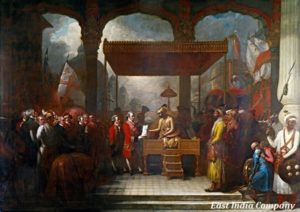
A number of bilateral agreements and memorandums of understanding (MoUs) have been concluded in diverse areas covering economic and commercial cooperation, culture, science and technology and education.
In terms of trade and investment, India has strong economic interests in the Netherlands. There are over 200 Indian companies operating in the Netherlands. The Netherlands emerged as the third largest investor in India in 2017-2018 with investments valued at $2.67 billion across a variety of sectors such as services sector, trading, automobile industry, fermentation industries, chemicals and water management. It was the second largest destination for foreign investment by Indian companies, after Singapore with investments worth Rs 835 billion (approximately $12.8 billion) in 2017. The top five sectors attracting FDI equity flows from the Netherlands were services sector, computer software and hardware, trading, automobile industry and fermentation industries.
India and the Netherlands have a bilateral trade of $8.77 billion (April 2017-March 2018). Indian exports to the Netherlands grew at 14.7 per cent, while Indian imports grew at 18.2 per cent. During the financial year 2018-2019 (April to September), total two-way trade stood at $6.28 billion. The Netherlands was India’s fourth largest trading partner in the EU, after the UK, Germany and Belgium.
The main items of Indian exports to the Netherlands are petroleum and related products, apparel and clothing, textile yarn, fabrics, made-up articles, manufactures of metals and iron and steel, organic chemicals and medicinal and pharmaceutical products, electric machinery, telecommunication equipment, general industrial machines and road vehicles, vegetables and fruits, marine products, rice and coffee, tea, cacao, spices etc. Bilateral trade between India and Netherlands grew in India’s favor during April-March 2018.
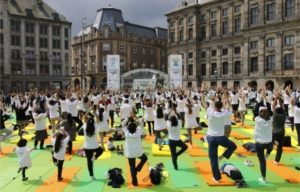
The successful implementation of the electronic Tourism Visa (eTV) in the Netherlands from August 15, 2015, has contributed greatly to increased business and tourism flows and people to people contacts. From a single direct flight in 2015, the number of daily non-stop flights between India and the Netherlands increased to five in 2018 connecting Amsterdam to Delhi, Mumbai and Bengaluru.
The Netherlands has identified nine sectors as key sectors viz. agriculture, water management, ports and logistics, inland waterways, health care, science and technology, urban development, shipping and renewable energy. As the Dutch strengths in these sectors match India’s needs, these are priority sectors for bilateral cooperation.
Culture and Education
In May 1985, a cultural agreement was signed between the two countries, which provides for cooperation and exchanges in education and science, art and culture. An MoU on cultural cooperation was signed in June 2017.
Indian Cultural Centre named “The Gandhi Centre” in The Hague was inaugurated on October 2, 2011. The Centre promotes Indian culture through its active calendar of programs including
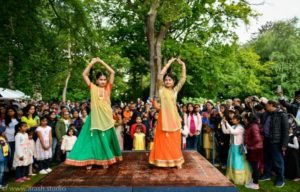
regular yoga, tabla and Hindi classes. In addition to this, the Centre organizes a wide range of diverse cultural activities and programmes, such as music, dance, workshops, movies, documentaries, lectures, celebrations of Indian festivals. It also partners with other local Dutch cultural organizations to promote Indian culture.
The Fourth International Day of Yoga was celebrated on 18 June 2018 at the Museumplein, Amsterdam. The highlight of the event was a talk and meditation session led by His Holiness Sri Sri Ravi Shankar, group session of the Common Yoga Protocol, and a yoga workshop. There was also a separate ‘Yoga Hut’ featuring seven different schools of yoga, competitions on yoga. Stalls providing advice on yoga, wellness and healthy living and food trucks with vegetarian and vegan food catered to the visitors. The grand finale was a captivating performance titled ‘The Soul Shanti Concert’ by violin maestro Dr L. Subramaniam and Bollywood playback singer Kavita Krishnamurthy.
An MoU was signed between ICCR and Leiden University in December 2010 leading to the establishment of an ICCR Chair of Contemporary India Studies at Leiden University since September 2011. Besides Leiden Institute of Area Studies (LIAS), International Institute for Asian Studies (IIAS) also promotes research on India. An MoU for the extension of the Chair of Contemporary India Studies at Leiden University was signed between ICCR and Leiden University in November 2017. In May 2018, an MoU on collaboration in the field of on the training of diplomats was signed between Indian Foreign Service Institute (FSI) and the Netherlands Institute of International Relations Clingendael. The Amity Group from India has set up an international school in Amsterdam.
Diaspora
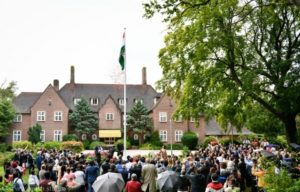
The Netherlands hosts the second largest Indian diaspora (after the UK) in Europe and the largest Indian diaspora community on mainland Europe, totalling around 2,35,000 comprising 35,000 Indians and 2,00,000 Suriname-Hindustani community of Indian origin. The Indian nationals in the Netherlands broadly comprise of businessmen, IT and other professionals and students. The Suriname-Hindustani community is well integrated into Dutch society and is active in all spheres in the Netherlands, including in politics. Former Deputy Mayor of The Hague Municipality, Rabin Baldewsingh, an influential and charismatic leader belonging to the Suriname-Hindustani community, has been conferred with the Pravasi Bharatiya Samman Award (PBSA) for the year 2014, making him the first member of the Suriname-Hindustani community in the Netherlands to be awarded the prestigious Pravasi Bharatiya Samman Award (PBSA). PBSAs have also been conferred on two other prominent members of the Indian Diaspora, viz. Ram Lakhina and Wahid Saleh in 2009 and 2011 respectively.
The diaspora forms an important link between the two countries and facilitates people-to-people contacts. The e-Tourist Visa scheme, Know India Programme, Tracing the Roots Programme, India Corporate Internship Programme etc. have played an important role in enhancing and deepening people-to-people contacts.
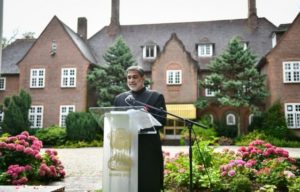
There are approximately 3,000 Indian students pursuing bachelors, masters and research courses in various universities in The Netherlands.
Apart from the Dutch, the Indian diaspora evinces keen interest in different aspects of Indian culture. Indian film festivals, food festivals, music and dance shows organized by local organizers are very popular and attended in large numbers by both the Indian and Suriname-Hindustani community. The diaspora also actively participates actively in events such as the Pravasi Bharatiya Divas, which was organized January 7, 2018, by the Embassy in The Hague.

